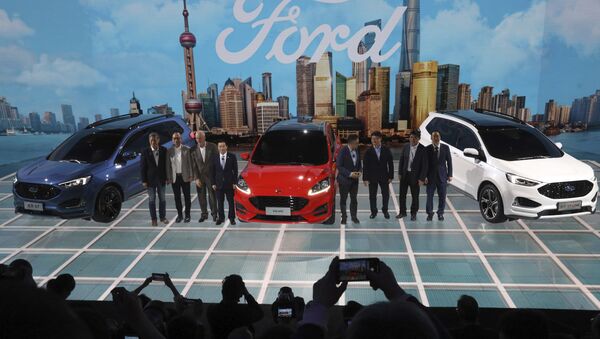Ford and McDonald’s announced in a statement on Wednesday that the two companies will collaborate in converting McDonald’s coffee waste into a durable material that can be used in manufacturing vehicle parts.
“McDonald’s commitment to innovation was impressive to us and matched our own forward-thinking vision and action for sustainability. This has been a priority for Ford for over 20 years, and this is an example of jump starting the closed-loop economy, where different industries work together and exchange materials that otherwise would be side or waste products,” said Debbie Mielewski, Ford’s senior technical leader of sustainable materials research team.
Ford explained that they can turn the coffee bean skins into a reusable material using high temperatures in a low-oxygen environment before mixing it with plastic and other additives to become pellets that can be later formed into various shapes.
The new material can be used in producing parts like headlamp housings and other interior and under-hood components, according to the statement published on Ford’s website.
“Like McDonald’s, Ford is committed to minimizing waste and we’re always looking for innovative ways to further that goal. By finding a way to use coffee chaff as a resource, we are elevating how companies together can increase participation in the closed-loop economy,” said Ian Olson, senior director of sustainability at McDonald’s, which will deliver coffee chaff waste to Ford.
Ford claims that components made of the new bioplastic will be some 20 percent lighter and require less energy during the molding process than that currently used.
The statement claimed that the collaboration between the two giant multinationals is an example of innovative approaches to product and environmental stewardship. The two partners said they will look for new ways to use waste as a resource, supporting sustainability goals.

